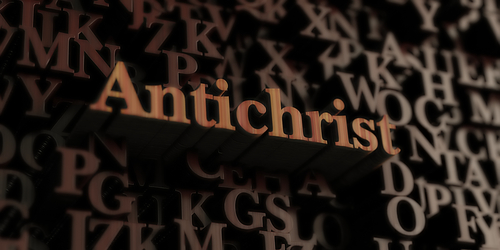A billionaire’s warning about the Antichrist and U.S. destruction stirs Silicon Valley.
Thiel’s Vision: Technology and Prophecy
Peter Thiel, the renowned tech entrepreneur and co-founder of PayPal, has recently concluded a private lecture series exploring the intersection of theology and technology. His four-part series, held at San Francisco’s Commonwealth Club, delved into the idea that modern surveillance technologies could fulfill biblical prophecies concerning the Antichrist. Thiel suggests that these technologies could enable unprecedented authoritarian control, all in the name of security and safety. The lectures, organized by Acts 17 Collective, were exclusive, with no transcripts or recordings available to the public.
Thiel’s discussions were deeply rooted in the philosophical framework of René Girard’s mimetic theory, which examines human desires and their potential for conflict. This theory has significantly influenced Thiel’s worldview, impacting both his business decisions and his understanding of social dynamics. Thiel’s insights offer a unique perspective on how technology can amplify societal risks, drawing from his own experiences in Silicon Valley.
The Irony of Surveillance
While Thiel warns of the dangers posed by surveillance technologies, his company, Palantir Technologies, stands as a leader in the field of data integration and surveillance systems. This paradoxical stance raises questions about his role in the development of technologies he critiques. Critics have noted the irony of Thiel discussing apocalyptic scenarios while building technologies that could potentially enable such outcomes. The exclusive nature of the lectures further emphasizes the tension between private discourse and public impact, as only a select few were privy to Thiel’s detailed arguments.
Peter Thiel warns about the Antichrist while wiring the world for total surveillance, militarizing AI, and laying the groundwork for techno-fascist rule
Even Ross Douthat had to say it: you're not resisting the Antichrist—you’re building his kingdompic.twitter.com/QIm4DhFiNb
— COMBATE |🇵🇷 (@upholdreality) June 27, 2025
Despite the private nature of the lectures, Thiel’s series has sparked considerable discussion within Silicon Valley, drawing attention to ethical considerations surrounding data integration. The potential for surveillance technologies to lead to authoritarian control has become a focal point for tech leaders, investors, and policymakers, who must now navigate the complex relationship between innovation and ethical responsibility.
Implications for Future Technology Governance
The impact of Thiel’s lectures extends beyond Silicon Valley. His engagement with theological critiques of technology suggests a growing awareness of the existential risks posed by unchecked technological advancement. As technology leaders grapple with these concerns, the discourse initiated by Thiel may influence the development and deployment of surveillance systems, promoting a more thoughtful approach to innovation. The series has also opened the door for philosophical and theological considerations to become more integral to tech industry discussions, challenging the predominant focus on disruption and progress.
Peter Thiel "Hyperstitioned" the AntiChrist into the Liberal Mind
Which caused people to search for the AntiChrist
Which forces them to understand Christ (Yin/Yang)
Which makes Peter Thiel a kind of "Morpheus" or "John The Baptist" figure pic.twitter.com/9ypmzLQljg
— Ticker is GOLD (memecoin reserve asset) (@ticker_gold) October 10, 2025
Ultimately, Thiel’s warnings serve as a reminder of the potential consequences of technological growth without ethical oversight. As the debate continues, the tech industry must consider the balance between innovation and responsibility, ensuring that the pursuit of progress does not come at the cost of fundamental freedoms.
Sources:
Fortune: Peter Thiel’s Antichrist Lectures
Luma: Antichrist Lecture Series

